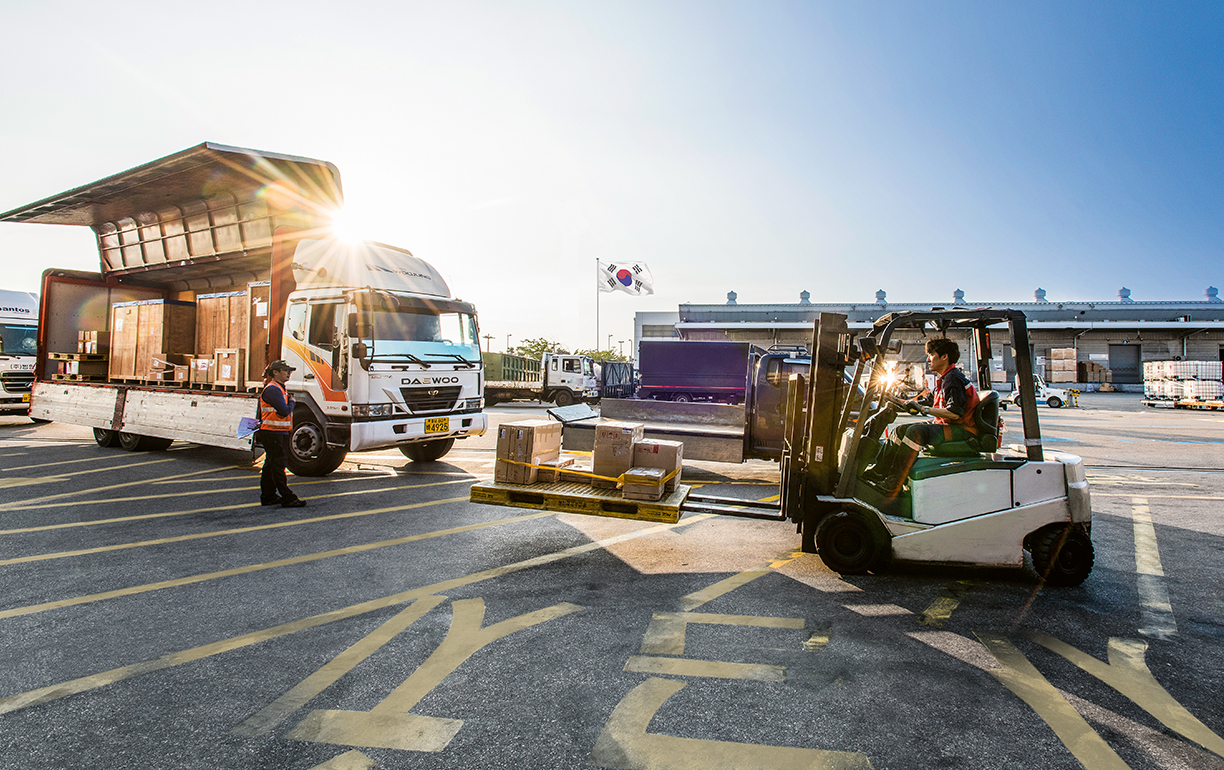
Korea’s door opener!
Woojung Air Consolidation from South Korea chiefly processes exports for a variety of carriers. The key service entails consolidating the freight of several forwarders and sending it on its way with Master Air Waybill.
|
With a skilful arm movement a ground handling employee spreads a cover made of transparent plastic over a pallet – conjuring up an image of a fisherman casting his net. The key difference is that in this case the “catch” has already been landed, namely in a warehouse in Incheon, South Korea’s largest airport. Goods are packed in cartons from various senders – earmarked for just as many recipients in Europe. Woojung Air Consolidation Inc. is responsible for grouping together the cartons on a pallet in a “Shipper Mixed Unit”. In a few hours’ time, a Lufthansa Cargo Boeing 777F carrying the group consignment will take off en route to Frankfurt. |
Agents such as Woojung that focus on consolidating shipments, and subsequently draw up the Master Air Waybill (M-AWB) for the consolidated consignments, play a major role in South Korea – in contrast to almost all other national airfreight markets. One factor has facilitated the high level of specialization is South Korea’s economy. At number eleven according to the 2016 ranking of the International Monetary Fund, it is significantly reliant on foreign trade via airfreight. After all, the country locatedon a peninsula does not have an accessible land border. |
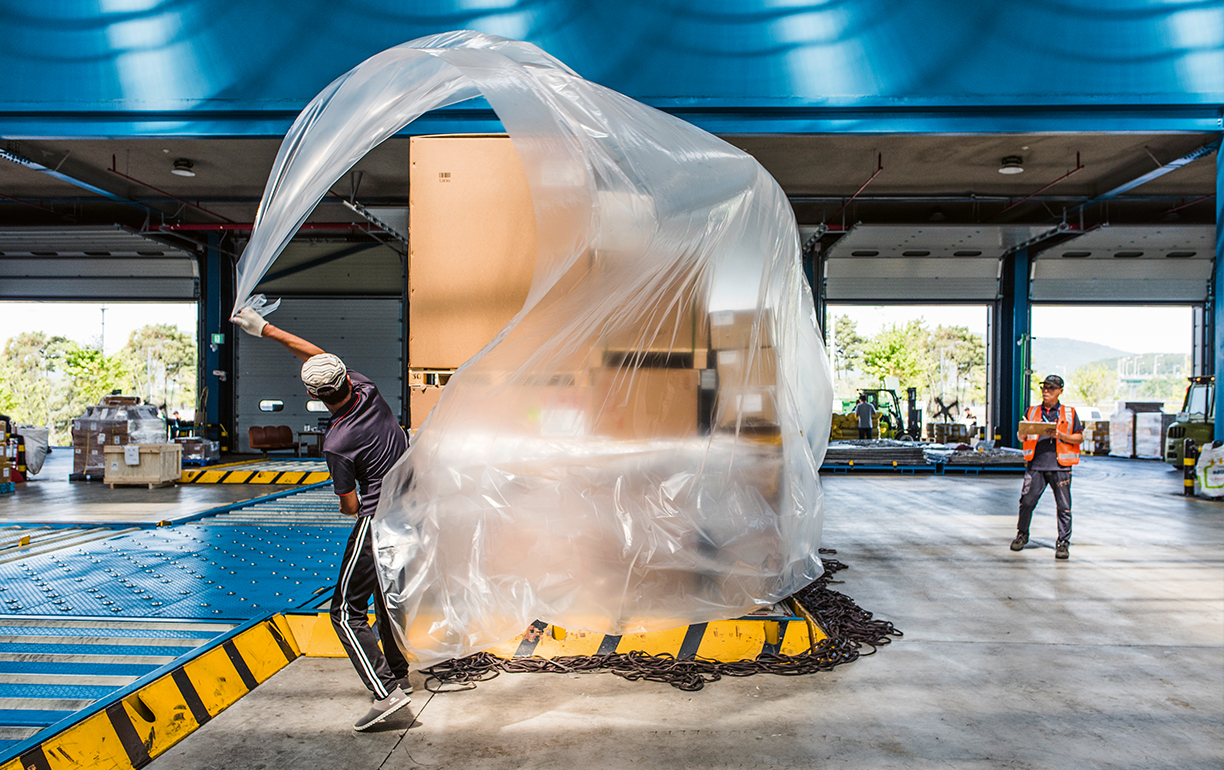
Some 400 forwarders in customer database.
However, specialists such as Woojung are in demand for other reasons too: their principals are forwarders, frequently small and medium-sized suppliers. And following the liberalisation of the corresponding licensing provisions in 1992, their number in South Korea has increased significantly. “Since then, the considerable influence of consolidators such as us has further increased,” says Andrew Yim, President and CEO of Woojung. His customer database now contains about 400 forwarders.
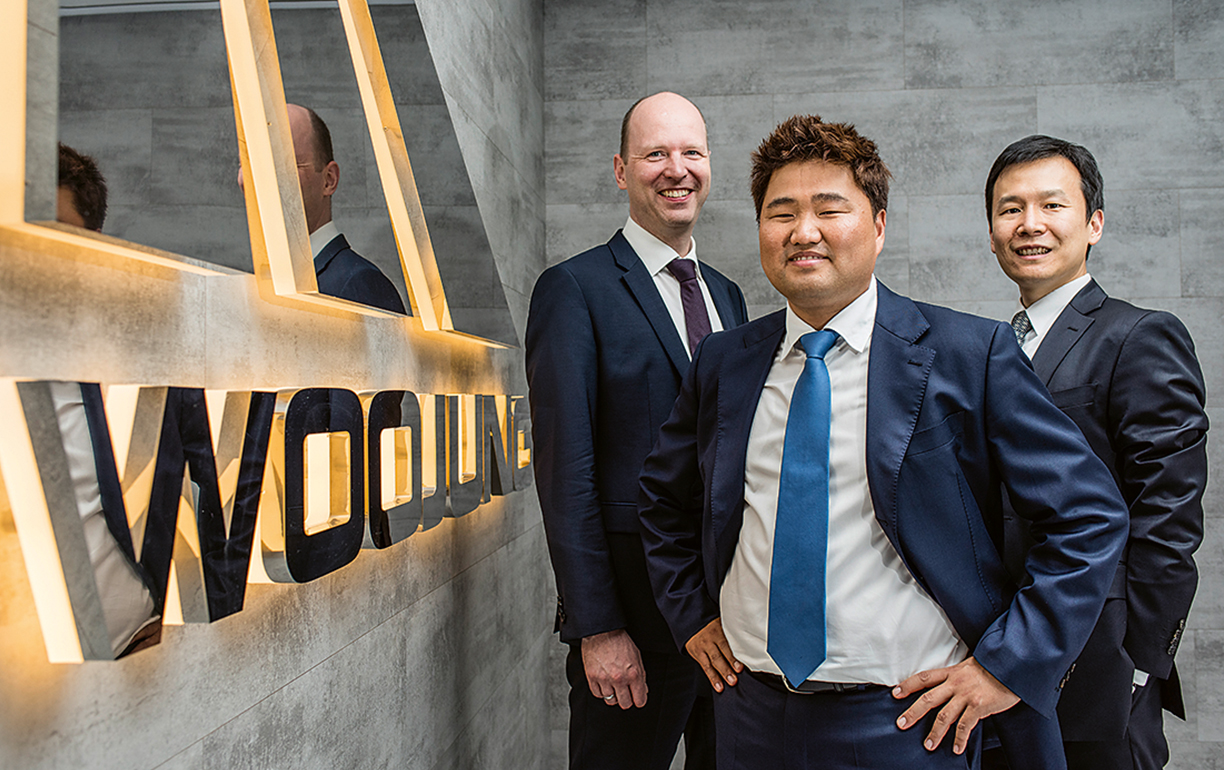
Long-standing co-operation: Woojung President Andrew Yim (centre) and Yunjin Shin (right) from Lufthansa Cargo have been working together since 2003. Left: Klaus Hagenkord, Lufthansa Cargo Head of Sales and Handling Korea
|
Although Andrew Yim and his 65-strong team do not maintain direct relations with the shippers, they are familiar with the air freight they deal with. Woojung’s largest tonnage shares are attributable to mobile radio and other electrical appliances, car parts, plastics, clothing and products from South Korea’s traditionally strong semiconductor industry. Most of the consignments are exports. Whatever the flight destination, Woojung has partner service providers in more than 190 countries worldwide that deconsolidate the consignments and on request reforward them. |
In addition, the CEO emphasizes the now daily flights with the Boeing 777F from Incheon to Frankfurt – and the “Triple Seven” itself: “We benefit hugely from your abundant capacity.” This is all reflected in the increasing tonnage. “In the previous year we transported more than 1,600 tons for Woojung – almost 50 percent more than in 2015,” says Yunjin Shin, Senior Sales Representative at Lufthansa Cargo with responsibility held for the customer since 2003. In the first six months of 2017 it was more than1,000 tons, a further sharp increase. |
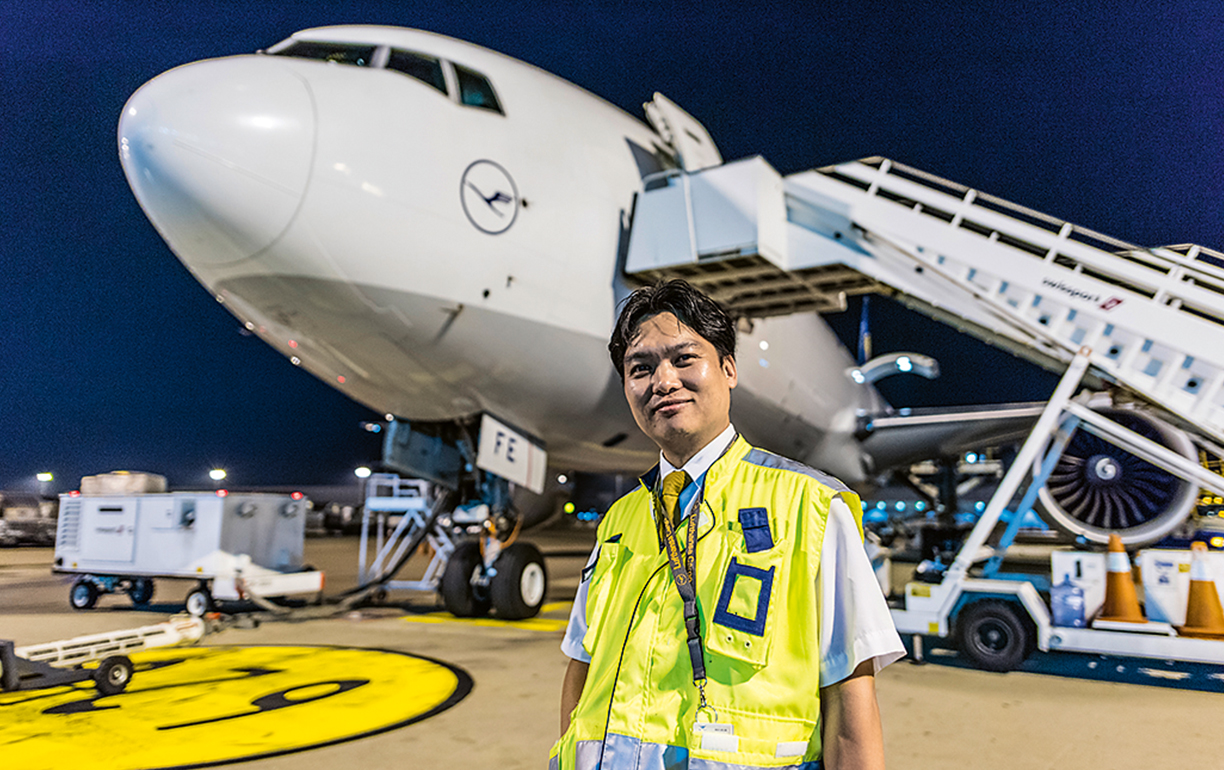
Upward trend: in the first six months of 2017, Lufthansa Cargo transported 1,000 tons of freight for Woojung. It the previous year
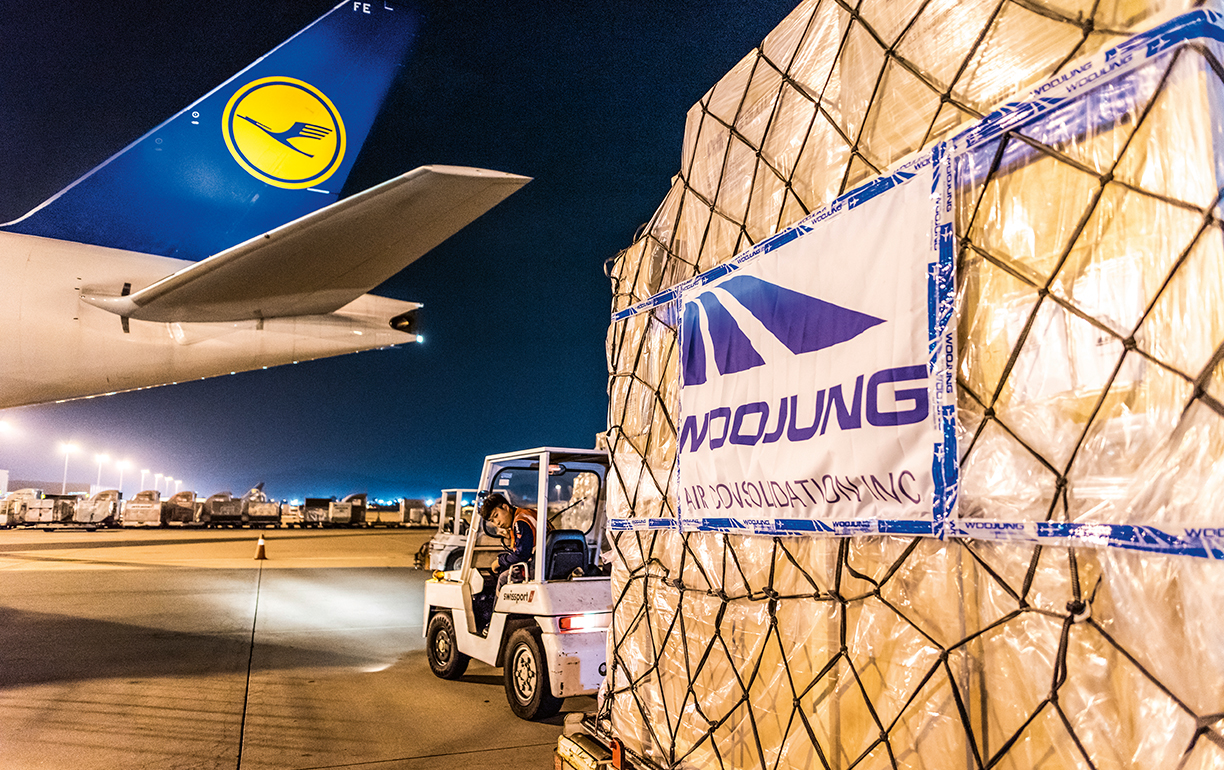
Strong carriers such as Lufthansa Cargo therefore enable the service provider to grow further – and take care of that part of the operations so that it can pursue new projects. Woojung therefore now consolidates the shipments at Incheon Airport in its own warehouse where all customs formalities are also dealt with. To that end the company has information about the status of the licensed commercial operator facilitating the shipments to the European Union.
On request, Woojung transports goods via its own trucks from all over South Korea to the airfreight hub Incheon – and therefore takes on the additional work from the forwarders. “With that in mind we established a dedicated transport division in May 2017,” says Andrew Yim. And the South Koreans are also increasingly dealing with imports. In that respect they make use of their worldwide partner network – and their preferred carrier Lufthansa Cargo.
